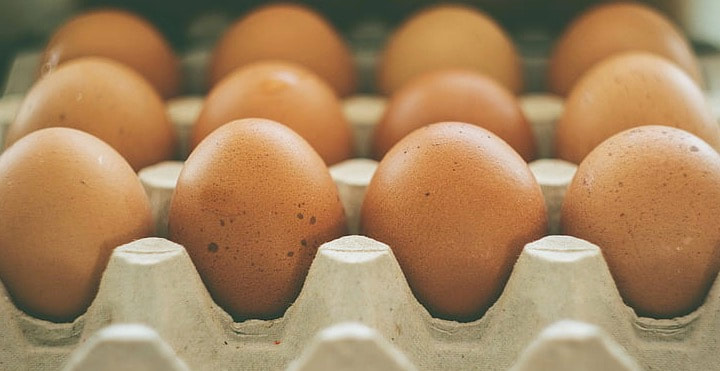|
SEARCH My Blog (Opens in new tab)
It's for much more than just muscle
In the swirl of debate about high and low protein diets and the necessary amount of protein, the wide-ranging role of protein for our health often gets scant attention. It's more than just for muscle.
Some government health guidelines recommend people over 50 increase their daily intake of protein. Usually, this recommendation is linked to sarcopenia - the loss of muscle as we age. Apparently, because we become less efficient at converting protein into muscle, we should have more to kick the process along. I'm not sure how that works in people who are not active, whether it helps or not. But for active older people, like me, I think that we should have quite a lot more than the usual health official recommendations.
Those recommendations range from 0.8g per kg of body weight to 1.2g per kg. If you are exercising regularly and hard, then up to 2.0g / kg can be utilised by your body.
On the cautionary side, there is research showing that too much protein can have adverse health effects, including a reduced lifespan. If we do become less efficient at converting protein into muscle, then I suspect that we also become less efficient in utilising protein generally. Consider this; protein is part of every cell, tissue and organ in our bodies. We need protein for many essential organs and functions, including:
We can’t store protein, we need to eat it daily
Unlike fats and carbohydrates, we cannot store protein; we need a daily intake of dietary protein. Studies show that about half of older people consume less than conservative general health recommendations (about 0.8g per kg of body weight).
While extra protein may not lead to extra muscle, we know that a lack of adequate protein intake contributes to skeletal muscle loss. Consuming less than needed is a serious problem. Not just for muscle but for all of the functions listed above. Boost your intake, here are some foods
A daily intake of 1.2g of protein per kilogram of body weight for people over 50 is a healthy objective, especially if you are active. If you are an active person, the "extra" protein will operate metabolically more efficiently across all the functions listed above, including building new muscle.
In practice, this means if you weigh 70kg, then you should aim for a daily intake of 70 X 1.2 = 84g or protein. This is not very much - I mean it is not difficult to achieve that many grams per day. Personally, I aim to get 25% of my daily calorific intake from protein sources. For me, with my high level of activity, that comes in at about 130g per day, which equates to 1.9g per kg of bodyweight. Protein from animal sources, combined with grains, fruits and nuts, will get you to your 1.2g/kg/day target. Some sources of dietary protein include:
A large egg, for example, contains 7g of protein. I have two large eggs daily. I also consume a protein shake daily containing 26g of protein as I use high-protein yoghurt in it. I would often eat 200g of chicken ~ 54g of protein, and an oily fish such as salmon which also has healthy fats (200g) ~ 40g of protein. Plus I eat plenty of nuts, mainly hazelnuts, almonds, pistachios and walnuts, every day which adds up to 4 or 5g of protein, and a bunch of healthy fats. However I do admit that unless you pay attention to this on a daily basis your protein intake can easily slip away. This attention is the price you pay to power your body for your exercise regime. Review your daily intake of protein, and use Google to do a rough calculation of how much protein you are eating. If you are way under the 1.2g per kg of body weight, then think seriously about boosting your intake. Higher protein intake is associated with better strength, physical performance, and lean muscle mass in older adults. Don't cut yourself short.
Follow me on Quora for more health and fitness tips.
If you enjoyed this article >> Follow me Leave a comment >> Share it >> Stay healthy If you have any questions email me and I will get back to you.  RSS Feed RSS Feed
Latest: get your free customised fitness plan designed uniquely for you.
|
ChoicesSince I was diagnosed at 50 with Type 2 diabetes I've been learning how to do bone-building fitness training which lowers my age. You can too. It's your choice. Walter Categories
All
Archives
May 2023
|




